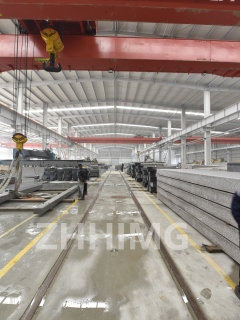Granite has long been a favored material in precision measurement applications, particularly in the fields of metrology and engineering. One of the key advantages of granite components is their ability to minimize thermal expansion during measurements, which is crucial for ensuring accuracy and reliability.
Thermal expansion refers to the tendency of materials to change in size or volume in response to temperature fluctuations. In precision measurement, even the slightest change can lead to significant errors. Granite, being a natural stone, exhibits a very low coefficient of thermal expansion compared to other materials like metals or plastics. This means that granite components, such as measurement tables and fixtures, maintain their dimensions more consistently across varying temperatures.
The stability of granite is attributed to its dense crystalline structure, which provides excellent rigidity and strength. This rigidity not only helps in maintaining the shape of the component but also ensures that any thermal expansion is minimized. When measurements are taken on granite surfaces, the risk of distortion due to temperature changes is significantly reduced, leading to more accurate results.
Moreover, granite's thermal properties allow it to absorb and dissipate heat more effectively than many other materials. This characteristic is particularly beneficial in environments where temperature fluctuations are common, as it helps to stabilize the measurement conditions. By using granite components, engineers and metrologists can achieve a higher level of precision, which is essential for quality control and product development.
In conclusion, granite components play a vital role in minimizing thermal expansion during measurements. Their low thermal expansion coefficient, combined with their structural stability, makes them an ideal choice for precision applications. By utilizing granite in measurement systems, professionals can ensure greater accuracy and reliability, ultimately leading to improved outcomes in various engineering and manufacturing processes.
Post time: Dec-11-2024

